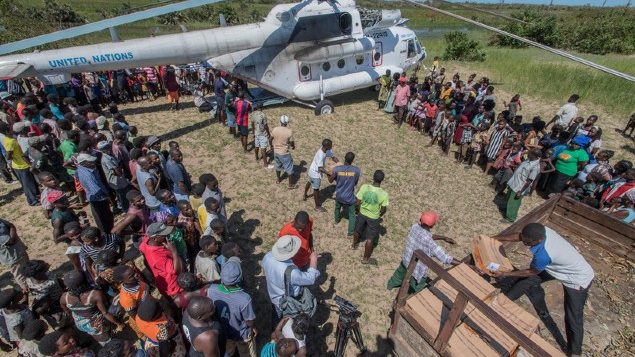The UN air service that transports humanitarian workers and lifesaving cargo is facing a severe funding problem. The United Nations Humanitarian Air Service (UNHAS) says it urgently needs $257 million ($205 million USD) to continue operating beyond February 2021. If service is disrupted that could affect humanitarian operations in places like Yemen, Syria and Haiti which are affected not only by conflict but also COVID-19.
“UNHAS is, in most cases, the only way that humanitarian organizations can reach people in need, particularly in countries with ongoing conflict and where access by road or sea is not feasible,” says Amir Abdulla, Deputy Executive Director of the United Nations World Food Programme, which manages the service. “The disruption of UNHAS operations would cripple the ability of the entire humanitarian community to reach some of the most in need people on the planet.”

Humanitarian workers board a UNHAS flight in South Sudan. Airplanes may be used to transport aid workers and for medical and security evacuations. (Giulio d’Adamo/World Food Program)
Service supports nations’ responses to pandemic
Besides providing transportation for workers and relief, UNHAS has played an important role in countries’ responses to the pandemic by, for example, transporting test samples and critical medical supplies. It also provides medical and security evacuations.
UNHAS was established in 2004 to provide air transportation where safe and reliable commercial service is not available. It serves 21 operations and 400,000 passengers annually to over 400 destinations. It uses aircraft and helicopters.







For reasons beyond our control, and for an undetermined period of time, our comment section is now closed. However, our social networks remain open to your contributions.